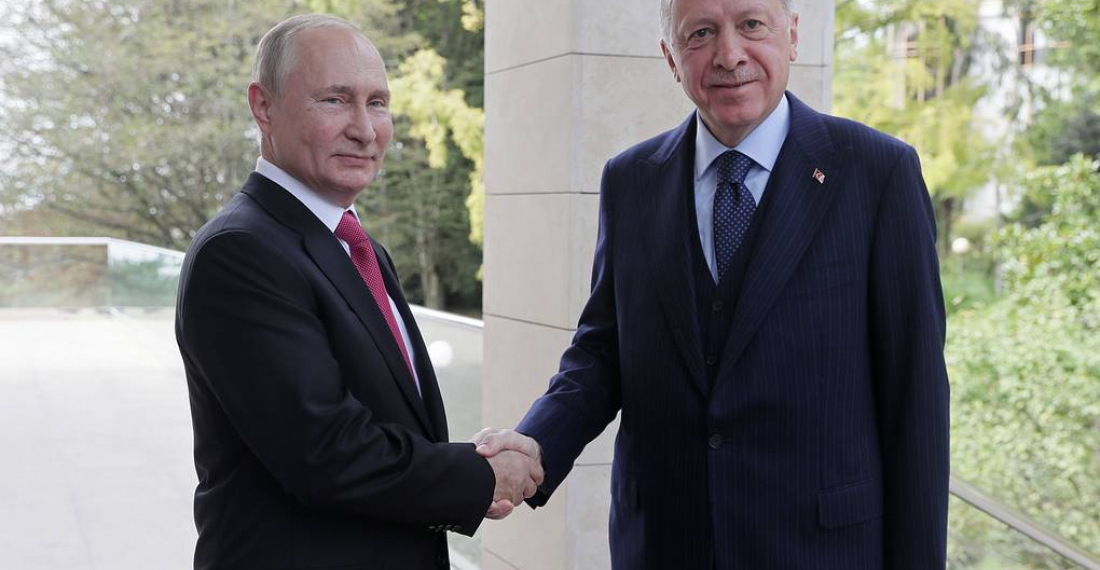Russian President Vladimir Putin hosted Turkish President Recep Tayyip Erdogan in the Russian Black Sea city of Sochi on Wednesday (29 September) with both sides keen to consolidate Turkish-Russian relations despite a number of serious differences, especially on Syria. This face-to-face meeting was the first for the two presidents in the past year-and-a-half. Their previous meeting was in March 2020, at the Kremlin, when Erdogan also paid a working visit to Russia. Due to the coronavirus pandemic, subsequent talks were held either over the phone or via a video link, in bilateral or multilateral formats.
The meeting in Sochi was reported to have lasted for three hours.
“There are great benefits in continuing Turkey-Russia relations by strengthening them day by day. The steps we take together regarding Syria are of great importance. The peace of the region also depends on the relations between Turkey and Russia,” Erdogan told reporters at the beginning of the discussions.
Regarding Turkey’s purchase of Russian-made S-400 air defence systems, Erdogan said: “In the United Nations General Assembly, certain individuals have always asked us about certain issues. We have already given them the necessary answer. Because it is impossible for us to go back from the steps we have taken.”
Expressing his thanks to Putin for his support in the fight against the fires in Turkey, Erdogan conveyed his condolences to Russian pilots who lost their lives during the firefighting efforts last summer. “Real friends are evident in such difficult days,” Erdogan said.
Pointing out that Turkey-Russia relations manifest themselves in very different ways in the political, military, economic and commercial fields, Erdogan said: “Although there are some ups and downs in the trade volume, it is in a very good situation right now. I believe it will come to an even better position, especially in tourism.”
Erdogan recalled that the Akkuyu Nuclear Power Plant was under construction and that it would be completed at the appointed time.
“I think next year we will be able to inaugurate the first unit. There is a lot of work. There are 13,000 people working here right now. 10,000 of them Turks, 3,000 of them are Russians, but almost all of them received education in Russia. This, of course, also strengthens the relations between us,” he stated.
The co-operation between Turkey and Russia continues “successfully” in the international arena, Putin said for his part, adding, “Here I mean our attitudes towards both Syria and Libya.”
The Russian-Turkish ceasefire control center is actively operating on the border between Azerbaijan and Armenia, and this cooperation is a serious guarantee of stability and the coordination of the sides' positions on further steps aimed at reconciliation.
“Our talks with Turkey are sometimes difficult, but it always ends with a positive result; we have learned to find a compromise,” Putin said.
He noted that the European natural gas market is going through a shaky period, but Turkey feels safe after the launch of TurkStream.
Touching on economic relations between Ankara and Moscow, Putin said Turkey’s investment in Russia had reached $1.5 billion and that Russia’s investment in Turkey currently stood at $6.5 billion.
Major investment projects between the two countries continue as planned and bilateral trade between them has increased by 50 percent in the first nine months this year, making up for previous losses and achieving a major rise amid the coronavirus pandemic, Putin said on the investments in Sochi, where the meeting was taking place.






